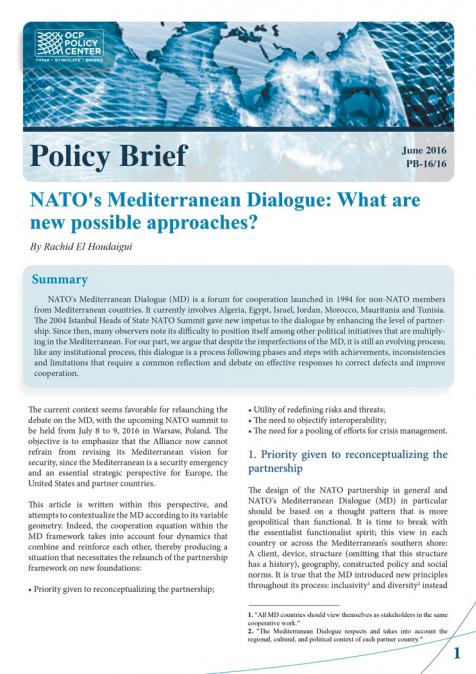Publications /
Policy Brief
NATO's Mediterranean Dialogue (MD) is a forum for cooperation launched in 1994 for non-NATO members from Mediterranean countries. It currently involves Algeria, Egypt, Israel, Jordan, Morocco, Mauritania and Tunisia. The 2004 Istanbul Heads of State NATO Summit gave new impetus to the dialogue by enhancing the level of partnership. Since then, many observers note its difficulty to position itself among other political initiatives that are multiplying in the Mediterranean. For our part, we argue that despite the imperfections of the MD, it is still an evolving process; like any institutional process, this dialogue is a process following phases and steps with achievements, inconsistencies and limitations that require a common reflection and debate on effective responses to correct defects and improve cooperation.



